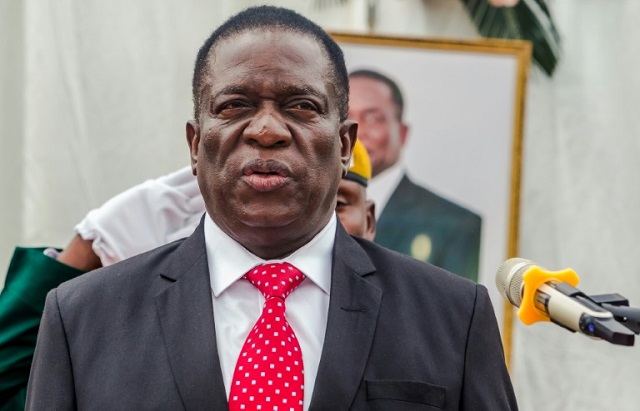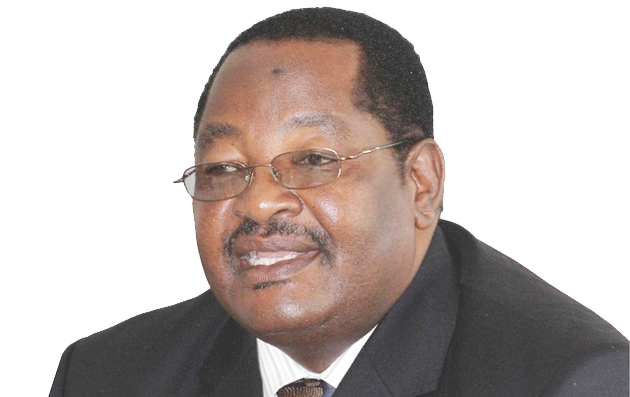EDITORIAL COMMENT: Mthwakazi Party mustn’t deny people a chance to be heard

THE decision by the Mthwakazi Republic Party — a tiny secessionist pressure group in Matabeleland — to disrupt the ongoing National Peace and Reconciliation Commission stakeholder consultations, is not only retrogressive but exposes their nefarious agenda which is bent on dividing the people of Zimbabwe. Their actions — which have seen them disrupt three meetings in Gwanda, Bulawayo and Lupane — have been condemned by right thinking Zimbabweans who have seen through their shenanigans and donor-seeking theatrics.
It is unfortunate that the MRP is playing to the gallery by disturbing an important national programme which seeks to find closure to the emotive issue of regrettable events which occurred in the past. Their childish antics have not only deprived the people of Matabeleland the opportunity to air their views regarding disturbances which occurred in this region in the early 1980s but have also brought to the fore their shallow brand of tribal politics.
Thankfully, there has been absolutely no buy in from ordinary people with villagers, the clergy, politicians and traditional leaders united in expressing their utter disdain for the uncouth and anarchic behaviour of the motley crew of Mthwakazi activists.
Unity was achieved in Zimbabwe in 1987 when the late Vice President Joshua Nkomo and former President Robert Mugabe put the people ahead of their personal ambitions to end a five-year period of hostilities between PF-Zapu and Zanu-PF. From then on, Zimbabwe became one country governed by a united Zanu-PF under the able leadership of the two former liberation fighters.
History will show that there is nothing to be gained from seeking to divide a people based on tribal considerations as this only leads to civil strife and instability. As Zimbabweans, we need not look no further than our African brothers in Rwanda who bore the brunt of a genocide whose origins can be traced to the primitive politics of tribal supremacy.
As a nation preoccupied with extricating our economy from years of stagnation and revelling in a new dispensation, we certainly cannot allow ourselves to be dragged back to the Stone Age by bigoted activists motivated by the lure of donor money. Zimbabwe is making giant strides under the new political order and is being embraced by the community of nations and does not need unnecessary sideshows.
The Government has also shown that it is serious in tackling the issue of national healing and reconciliation by constituting a National Peace and Reconciliation Commission whose mandate is to ensure post-conflict justice, healing and reconciliation, to develop programmes to promote national healing, unity and peaceful conflict resolution.
An eight-member NPRC was appointed in 2016 and was chaired by the late former Speaker of Parliament Mr Cyril Ndebele. Following his death, President Emmerson Mnangagwa appointed Retired Justice Sello Nare chair of the commission with the other NPRC members being deputy chair Lilian Chigwedere, Patience Chiradza, Choice Ndoro, Charles Masunungure, Geoffrey Chada, Leslie Ncube and Godfrey Chekenyere.
The President also signed the National Peace and Reconciliation Commission Bill (NPRC) into law in January, making operational the Commission which will run for the next 10 years. The Commission will tackle, among other issues, the emotive matter of Gukurahundi.
President Mnangagwa has since appointed Vice-President Kembo Mohadi to head the Organ on National Peace and Reconciliation in a show of Government’s high-level commitment to the matter. Speaking in Davos, Switzerland, in January, President Mnangagwa expressed commitment to bringing finality to national healing and reconciliation saying: “We are not saying the past must be thrown away from history. It has happened, it is there . . . The communities that are affected, if they ask me to come for any reason, I will.
“The most important thing is that what has happened has happened. What can we do about the past? We have put up a Commission to deal with that issue.
That should not stop us to have a better future where all the communities should be united, should cooperate, should love each other, should work together; this is the message which we have.
“We are more worried now about how in the future we should have a united Zimbabwe. In my view, there is nothing more than me putting legislation where (there is) a Commission headed by a Vice-President and most eminent persons in Zimbabwe to deal with that issue and make recommendations.”
We applaud the Government for taking the issue of national healing and reconciliation seriously as it will bring closure to emotive issues of the past, allowing Zimbabweans to move forward as a united nation. We agree that there are some wounds that may be still festering as a result of mistakes made in the past but these should not be allowed to detract from the collective goal of a prosperous Zimbabwe. Groups like MRP are infringing on the rights of the people of Matabeleland to be heard and their actions are illegal. They have a right to protest but not in a manner that borders on criminality.











Comments